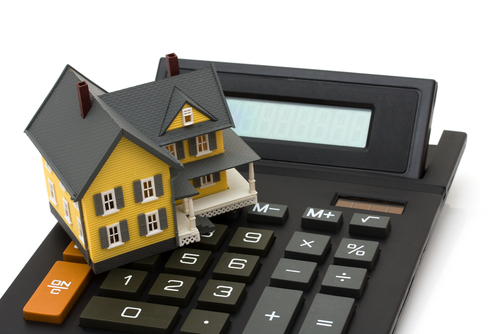4 Common Home Buying Myths To Move Past
 Buying a house is the largest purchase most people will make in their lifetime. And while the internet is a wonderful place to find information when it comes to home buying, there is also a lot of information out there that is misleading or downright not true. In today’s blog post we are going to be discussing four common myths about home buying - let’s dive in:
Buying a house is the largest purchase most people will make in their lifetime. And while the internet is a wonderful place to find information when it comes to home buying, there is also a lot of information out there that is misleading or downright not true. In today’s blog post we are going to be discussing four common myths about home buying - let’s dive in:
1. The first myth that we are debunking is that you need a 20% down payment. While sometimes this is true and putting that much down can have its benefits, you don’t always need that much to buy your dream home. There are some loan programs that allow for half of that, or even less.
2. The second myth that we are busting is that you have to be completely out of debt before you are able to own a home. Yes, that means if you are carrying student loans or other forms of debt, you could still qualify. Mortgage underwriters like to see you using and managing credit responsibly, so ensuring your payments are made on time is crucial.
3. Piggybacking off our last myth, number three is that your credit score needs to be perfect to buy a home. Of course having a good credit score will only help you, but don’t stress if its not great. For a conventional loan approval, the minimum FICO credit score is around 620.
4. The last myth we are exposing is that it is cheaper to rent than to own. In the short term there may be some truth to this statement, however if you plan on renting for a few years or longer, it could be in your best interest to put that money towards an asset you own. Renting is a great option for someone who moves around a lot, but if you are planning to stay in one place for a while buying can be a great option.
Have other home buying questions and/or myths you want to discuss? Contact our experienced team today and let us help you find your perfect home in Omaha, NE!
 So you applied for a mortgage (congratulations!) and you are wondering if there are things you should avoid doing until the process is finalized. The short answer is yes, and below we have listed five things for you to review and (hopefully) avoid doing. Let’s dive in:
So you applied for a mortgage (congratulations!) and you are wondering if there are things you should avoid doing until the process is finalized. The short answer is yes, and below we have listed five things for you to review and (hopefully) avoid doing. Let’s dive in:  Did you know the photos that are used in your home listing are a crucial part of the home selling process? It’s true! They can be a large factor in the amount of initial interest your listing receives, and can be a great tool to showcase your home with homebuyers out of state. Below we discuss a few tips and tricks to help ensure your images not only turn out well, but stand out from the rest. Let’s dive in:
Did you know the photos that are used in your home listing are a crucial part of the home selling process? It’s true! They can be a large factor in the amount of initial interest your listing receives, and can be a great tool to showcase your home with homebuyers out of state. Below we discuss a few tips and tricks to help ensure your images not only turn out well, but stand out from the rest. Let’s dive in:  Buying a house is likely the largest purchase an individual will make in their lifetime. It takes time to save for a downpayment, find the right real estate agent, tour potential homes and finally put an offer together.
Buying a house is likely the largest purchase an individual will make in their lifetime. It takes time to save for a downpayment, find the right real estate agent, tour potential homes and finally put an offer together.  Whether you are the buyer or seller in a real estate transaction, the home inspection is a very important part of the process. While the inspection is designed to protect the buyer of the sale and alert them of damage to the home, a poor result from the inspection can open the door to renegotiation. In today’s blog post we are going to be discussing what a home inspection is and all the ins and outs of the process. Let’s dive in:
Whether you are the buyer or seller in a real estate transaction, the home inspection is a very important part of the process. While the inspection is designed to protect the buyer of the sale and alert them of damage to the home, a poor result from the inspection can open the door to renegotiation. In today’s blog post we are going to be discussing what a home inspection is and all the ins and outs of the process. Let’s dive in: During your hunt for a new Omaha, NE home you may come across properties that are listed as a short sale. If you are not familiar with this real estate phrase then you are in the right place as today we are going to be discussing not only what a short sale is, but also the pros and cons that can come along with it. Let’s dive in:
During your hunt for a new Omaha, NE home you may come across properties that are listed as a short sale. If you are not familiar with this real estate phrase then you are in the right place as today we are going to be discussing not only what a short sale is, but also the pros and cons that can come along with it. Let’s dive in:  Buying a home is one of the largest purchases most people will make in their lifetime. Many people will find their desired community and ultimately the home they want to settle into - but what if that home seems to come with a questionably high price tag?
Buying a home is one of the largest purchases most people will make in their lifetime. Many people will find their desired community and ultimately the home they want to settle into - but what if that home seems to come with a questionably high price tag?  Before we jump into the main topic of today’s blog post, it is important to understand exactly what a foreclosure is. A foreclosure is a property that has been seized by the bank who originally gave the owner the loan. In each mortgage contract there is what’s called a ‘lien’ on the property which allows the bank to take control of the property in the event the borrower fails to make mortgage payments.
Before we jump into the main topic of today’s blog post, it is important to understand exactly what a foreclosure is. A foreclosure is a property that has been seized by the bank who originally gave the owner the loan. In each mortgage contract there is what’s called a ‘lien’ on the property which allows the bank to take control of the property in the event the borrower fails to make mortgage payments.  There is no denying that Omaha, NE is a hot real estate market! With that said, if you find the perfect home in the city it helps to be equipped with knowledge to help make your offer stand out from the rest. These tools may be the competitive advantage you need for sellers to accept your offer. Let’s dive into this more below:
There is no denying that Omaha, NE is a hot real estate market! With that said, if you find the perfect home in the city it helps to be equipped with knowledge to help make your offer stand out from the rest. These tools may be the competitive advantage you need for sellers to accept your offer. Let’s dive into this more below: .jpg) There is no better feeling than signing the final paperwork on your first home! And while the difficult hunt of finding your perfect property is over, there are still many items to check off your ‘to-do’ list before you can kick your feet up.
There is no better feeling than signing the final paperwork on your first home! And while the difficult hunt of finding your perfect property is over, there are still many items to check off your ‘to-do’ list before you can kick your feet up. 








